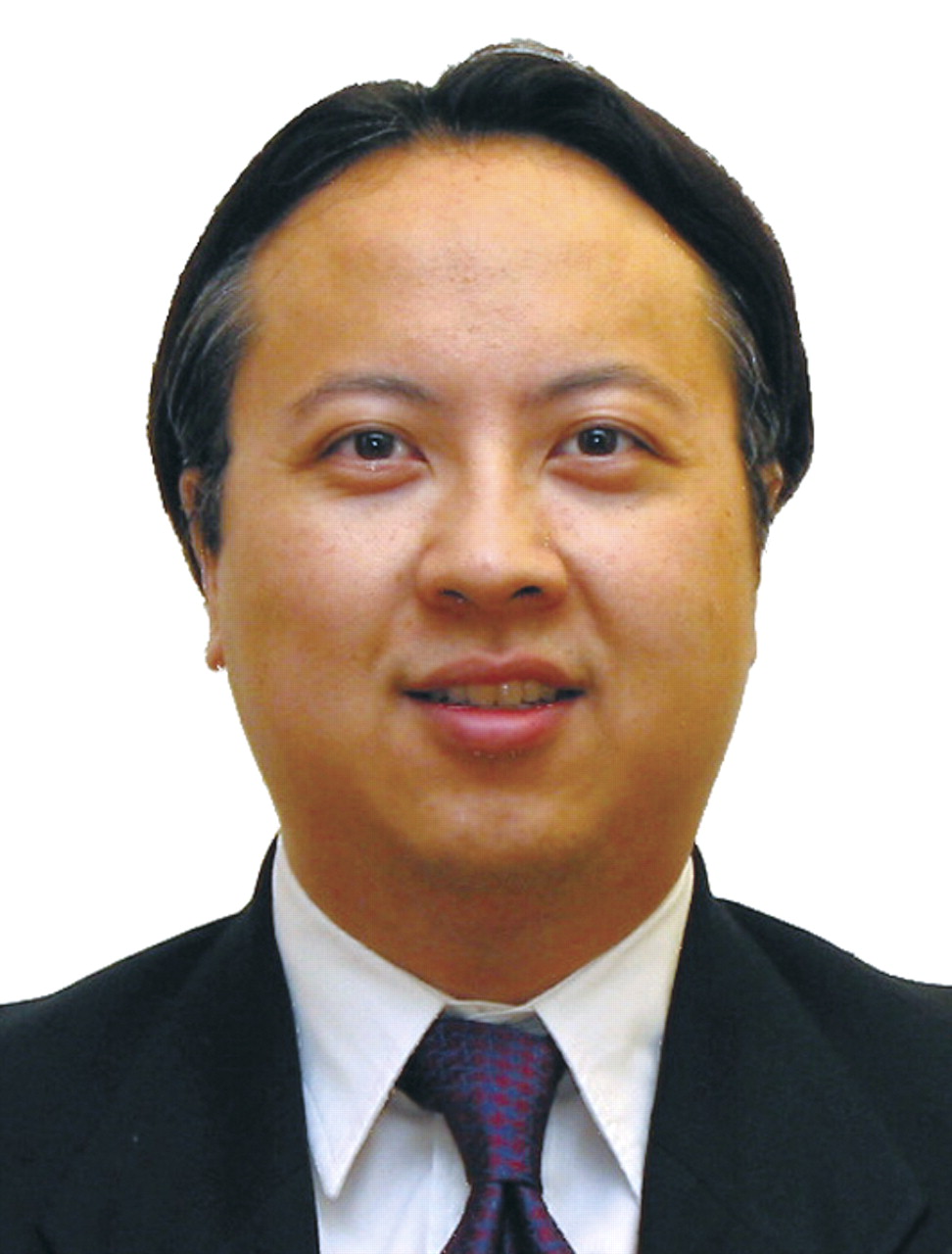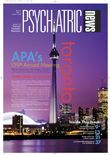This article will highlight the many informatics offerings at APA's 2006 annual meeting and the annual meeting of the American Association for Technology in Psychiatry (AATP) in Toronto that address some of your informatics needs. Every year there are many workshops, symposia, and courses that cover a range of topics in medical informatics. Due to great popularity, some of the CME courses are repeats of courses presented in past years, so sign up early. Please note that there is an additional fee to attend courses, and you must register in advance.
One of the new features of APA's Web site is the ability to search the scientific program based on topic, keyword, or presenter. In addition, you can create an on-line account and save your searches to create an itinerary. To access this tool, go to the annual meeting page at<www.psych.org/edu/ann_mtgs/am/06/index.cfm> and scroll down to the gold box labeled “Scientific Program Itinerary Planner, Search for Session Details.” A very nice feature of the tool is that it highlights scheduling conflicts you may have created by selecting sessions offered at the same time.
After you have saved your searches into an itinerary, you can either print the page to take with you or save it on your personal digital assistant (PDA). To save the itinerary on your PDA, you must have an account with AvantGo, a mobile content provider that offers no-charge accounts. If you are a Windows user, an alternative to using AvantGo is to create a PDF from the Itinerary using either Adobe Acrobat or another PDF creator along with the Adobe Acrobat Reader for your PDA. If you are using Mac OS X, go to the print menu, click on“ Print,” then “PDF,” and finally, “Save as PDF.” For older operating systems, you can use the Mac version of Adobe Acrobat (the creator program, not the reader), but it is expensive. Other options include PrintToPDF for OS 9, which is shareware, and JAWS PDF Creator, which costs $85. If all of that sounds complicated, sign up for one of the three PDA courses offered this year to learn how!
The annual meeting of the AATP is being held in conjunction with APA's annual meeting on Saturday, May 20, from 8 a.m. to 5 p.m., in the Toronto Marriott Eaton Centre.
The AATP's annual meeting will cover a wide range of topics. David Medvedeff, Pharm.D., M.B.A., will discuss how technology plays a vital role in disaster response in the session “Disaster Health Informatics.” Alex Young, M.D., will lead the session “The Quality Enhancement Research Initiative,” which is an informatics system to support collaborative care for chronic illness. J. David Moore, M.D., will speak on behavioral health care and informatics from his perspective as medical director for Florida Health Partners. Thomas Kim, M.D., has been working with former Surgeon General David Satcher, M.D., on disaster telepsychiatry in response to Hurricane Katrina. APA President Steven Sharfstein, M.D., will speak on psychiatric informatics and public policy, and will provide APA's perspective. Ross Martin, M.D., M.B.A., director of business technology at Pfizer, will provide an overview of recent efforts to develop health care information technology standards for the interoperability of various electronic medical record and information networks with respect to Medicare Part D.
The following sessions are part of the APA annual meeting program:
Course: “Computer-Assisted Diagnostic Interivew”; Sunday, May 21, 1 p.m. to 5 p.m.; Room 717 B, Level 700, Toronto Convention Centre, South
This course demonstrates the use of the CADI Rom, a computer-based program on PCs and PDAs that assists psychiatric diagnosis of adults with guided structured interviews, data collection, and differential-diagnoses generation. CADI Rom diagnostic precision (accuracy, completeness, and reliability) is equal to gold standards (SCID, consensus-diagnosis).
Issue Workshop: “Online Peer Support Groups and Support Group Members”; Monday, May 22, 9 a.m. to 10:30 a.m.; Room 803 A/B, Level 800, Toronto Convention Centre, South
This workshop discusses how the Internet empowers patients by connecting them not only to information, but also to each other via online peer-support groups. Moderators of the groups will explain how the groups function, what their goals are, how group members interact, what topics are discussed, how the moderators moderate, and what the pros and cons of the groups are.
Issue Workshop: “Virtual Reality and Video Games in the Treatment of Mental Health Disorders and Addictions: An Evidence-Based Analysis”; Monday, May 22, 11 a.m. to 12:30 p.m.; Salon A, Convention Floor, Royal York Hotel
Presenters will review the scientific literature regarding various technological therapeutic innovations, such as virtual reality, video games, and other forms of computer-based therapy in terms of therapeutic effectiveness, diagnosis, treatment, and psychoeducation. The workshop will also cover the possible risks of ethical concerns and exacerbation of mental health problems.
Course: “How to Use Your Palm OS PDA in Psychiatric Practice: Basic”; Tuesday, May 23, 8 a.m. to noon; Conference Room F, Mezzanine, Sheraton Centre
This course is for beginners who own a Palm OS PDA. There will be hands-on instruction on how to enter information, use the different built-in programs, synchronize with a desktop computer, install software, and utilize medical software such as ePocrates Rx.
Course: “How to Use Your Palm OS PDA in Psychiatric Practice: Advanced Topics”; Tuesday, May 23, 1 p.m. to 5 p.m.; Conference Room F, Mezzanine, Sheraton Centre
This course is for advanced users who seek to get more out of their Palm OS device. This course is not intended for beginners or for those taking the above basic course until after they have had time to practice the skills mastered in that course. Topics will include how to prepare emergency backup of data, how to create a hand-held database, how to capture Web sites for offline viewing, and how to better organize your programs for ease of use. You will learn how to create PDFs and carry them on your PDA here.
Course: “How to Use Your Pocket PC PDA in Psychiatric Practice”; Wednesday, May 24, 8 a.m. to noon; Windsor Room East, Mezzanine, Sheraton Centre
This course will cover basic functions of the Windows Mobile (formerly known as Pocket PC) operating system for PDAs. Participants will learn ways to optimize their device settings, implement security, synchronize data with a desktop computer, install software, and run various medical applications.
Component Workshop: “The National Health Information Network and Psychiatry: How Will the Coming National Electronic Health Record (EHR) Impact Our Patients and Our Practice?”; Wednesday, May 24, 9 a.m. to 10:30 a.m.; Room 205 D, Level 200, Toronto Convention Centre, North
Presenters will discuss the development of the national health information infrastructure in the U.S. under the Office of the National Coordinator for Health Information Technology. They will review the status of the EHR movement, privacy and confidentiality issues, and the processes that are being utilized to develop standards and requirements for a nationally interoperable HER system.
Issue Workshop: “The Quality Information System: A New System for Measuring Progress in the Doctor-Patient Relationship”; Wednesday, May 24, 9 a.m. to 10:30 a.m., Room 714 B, Level 700, Toronto Convention Centre, South
Presenters will demonstrate use of the Quality Information System, a computerized system used in routine clinical practice. This program can implement a short measurement instrument (like the Health of the Nation Outcome Scales) to evaluate the treatment progress of individual patients and groups in a clinical practice, hospital, or health care system.
Course: “Psychiatry and the Internet”; Wednesday, May 24, 1 p.m. to 5 p.m.; Wentworth Room, Second Floor, Sheraton Centre
This course will review some of the many resources available on the Internet, such as Web browsers and search engines, and how to use them efficiently. Participants will learn how to access and find medical information, as well as how to download it. Patient-care issues such as online therapy and its implications will be reviewed.
Issue Workshop: “Computer Tools for CBT: Integrating Technology Into Clinical Practice”; Thursday, May 25, 9 a.m. to 10:30 a.m., Room 711, Level 700, Toronto Convention Centre, South
This workshop will provide a brief overview of the use of computers in treatment and education. Topics covered will include indications for using computer tools in clinical practice, integration of computer and human components of therapy and education, methods of using computer tools for CBT training, and economic issues.
Issue Workshop: “Use of a Standardized Comprehensive Psychiatric Assessment Tool to Facilitate Evidence-Based Decisions: The InterRAI Mental Health”; Thursday, May 25, 9 a.m. to 10:30 a.m., Room 205 A, Level 200, Toronto Convention Centre, North
This workshop will review use of the InterRAI mental health standardized data collection system for mental health, which is designed to include care planning, outcome measurement, quality improvement, and case mix–based funding applications. Workshop participants will learn how to use this comprehensive assessment tool for evidence-based clinical decision making and outcomes evaluation.
Symposium: “Virtual Environments and Convergent Media Technology”; Thursday, May 25, 2 p.m. to 5 p.m., Room 104 D, Level 100, Toronto Convention Centre, North
This symposium will review how virtual reality (VR) environments, created through computerized simulation programs and displays, have become clinically useful in medical and psychological VR applications. The presenters will discuss VR use in assessment, therapy, and rehabilitation, as well as for study of brain functions.
Symposium: “Using Technology to Improve Patient Care”; Thursday, May 25, 2 p.m. to 5 p.m., Room 714 B, Level 700, Toronto Convention Centre, South
This symposium will review how PDAs are playing an expanding role in health care. Clinical decision support, improved quality of care, and even prescription cost savings are some of the ways that technology improves patient care. ▪

